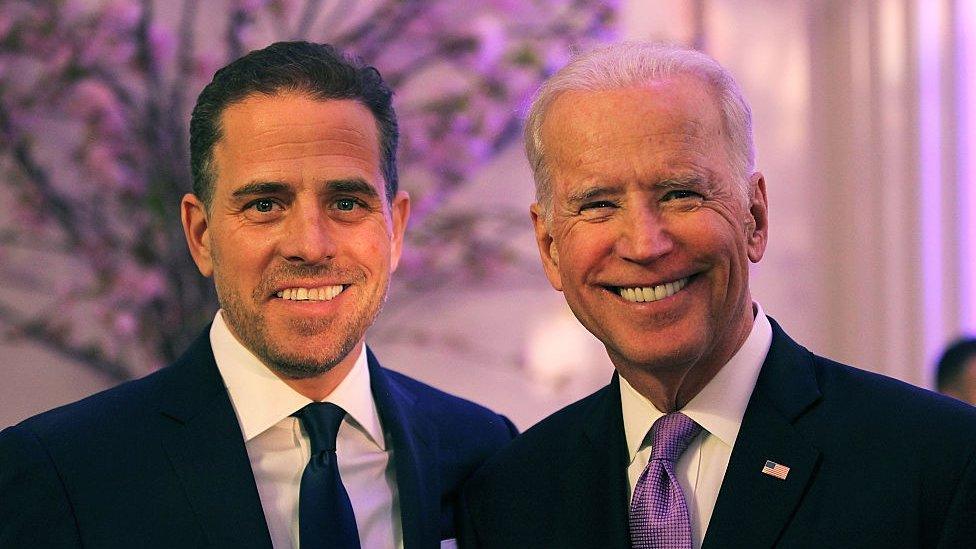Zuckerberg tells Rogan FBI warning prompted Biden laptop story censorship
- Published
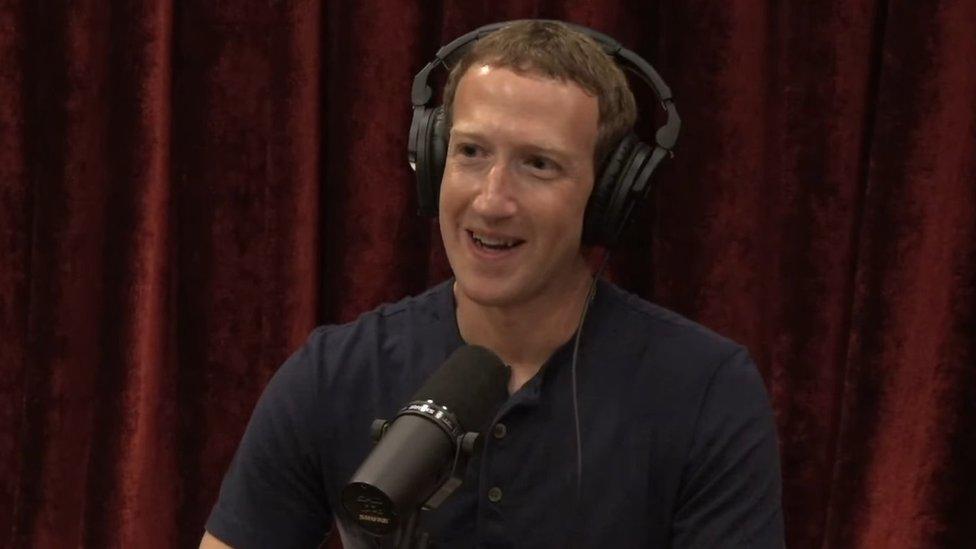
Zuckerberg appeared on the hugely popular Joe Rogan podcast in a rare unscripted media appearance
Mark Zuckerberg says Facebook restricting a story about Joe Biden's son during the 2020 election was based on FBI misinformation warnings.
The New York Post alleged leaked emails from Hunter Biden's laptop showed the then vice-president was helping his son's business dealings in Ukraine.
Facebook and Twitter restricted sharing of the article, before reversing course amid allegations of censorship.
Zuckerberg said that getting the decision wrong "sucks".
"When we take down something that we're not supposed to, that's the worst," Zuckerberg said in a rare extended media interview on the Joe Rogan podcast.
The New York Post story was released just weeks before the presidential election between Joe Biden and Donald Trump, which Mr Biden won.
It claimed that a laptop, abandoned in a repair shop by Hunter Biden, contained emails which included details of Hunter introducing a Ukrainian energy tycoon to his father and arranging a meeting. There is no record on Mr Biden's schedule that such a meeting ever took place.
Critically, it fed into long-running unproven allegations about corruption on Joe Biden's part to ensure his son's business success in Ukraine.
In that context, the New York Post story, based on exclusive data no other news agency had access to, was met with scepticism - and censored by social media outlets.
Zuckerberg told Rogan: "The background here is that the FBI came to us - some folks on our team - and was like 'hey, just so you know, you should be on high alert. We thought there was a lot of Russian propaganda in the 2016 election, we have it on notice that basically there's about to be some kind of dump that's similar to that'."
He said the FBI did not warn Facebook about the Biden story in particular - only that Facebook thought it "fit that pattern".
The article remains controversial. The hard drive at its centre was provided to the Post by Donald Trump's own lawyer, Rudy Giuliani.
More than a year after the story appeared, the Washington Post conducted its own analysis, external and concluded the laptop and some emails were likely to be authentic - but the majority of data could not be verified due to "sloppy handling of the data".
Other once-sceptical news organisations such as the New York Times, external have agreed at least some of the emails are genuine.
Rogan, one of the most popular podcasters in the world with an audience of millions for each episode, has himself been accused of spreading misinformation in the past.
Asking Zuckerberg if he regretted suppressing the factual story, the Facebook founder replied: "It sucks... I think in the same way that having to go though a criminal trial but being proven innocent in the end sucks... in the end you're free."
But Zuckerberg acknowledged that there remained disagreement about the story, which he said was a "hyper-political issue".
"Depending on what side of the political spectrum [you're on], you either think we didn't censor it enough or we censored it way too much."
Facebook did not completely ban sharing of the article, but instead limited how much its algorithm automatically shared it to other people for a week, while third-party fact-checkers tried to verify the reporting.
So while people could post the article and discuss it, it was less likely to spread organically to new users.
By contrast, Twitter banned sharing of the article at all. Both social media companies found themselves blasted by US Republicans and Donald Trump supporters, and had to explain their actions before a US Senate hearing in the following days.
Meta, Facebook's parent company, highlighted that Zuckerberg had addressed the FBI warnings at that 2020 hearing, saying of the Joe Rogan interview that "none of this is new", external.
But in a wide-ranging interview that covered Meta's virtual reality ambitions and Zuckerberg's personal life, the creator of Facebook also talked about his dislike for dealing with such thorny issues.
"I didn't get into this to basically judge these things. I got into this to design technology that helps people connect," he told Rogan.
"This whole thing that is arbitrating what is OK and what is not - I obviously have to be involved in that because, at some level, I run the company and I can't just abdicate that.
"But I also don't think that as a matter of governance you want all of that decision making vested in one individual."
Related topics
- Published6 April 2021
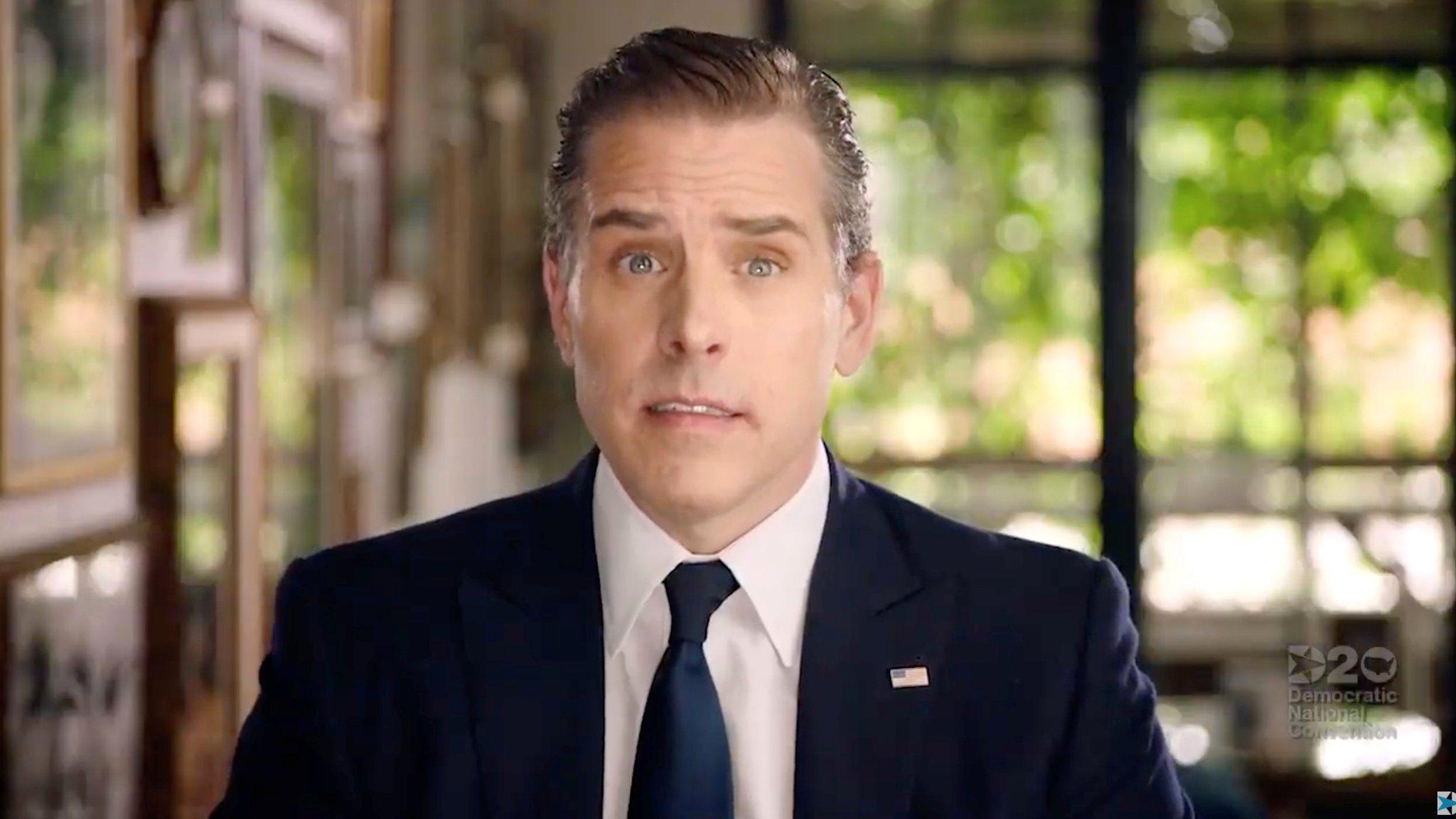
- Published11 June 2024
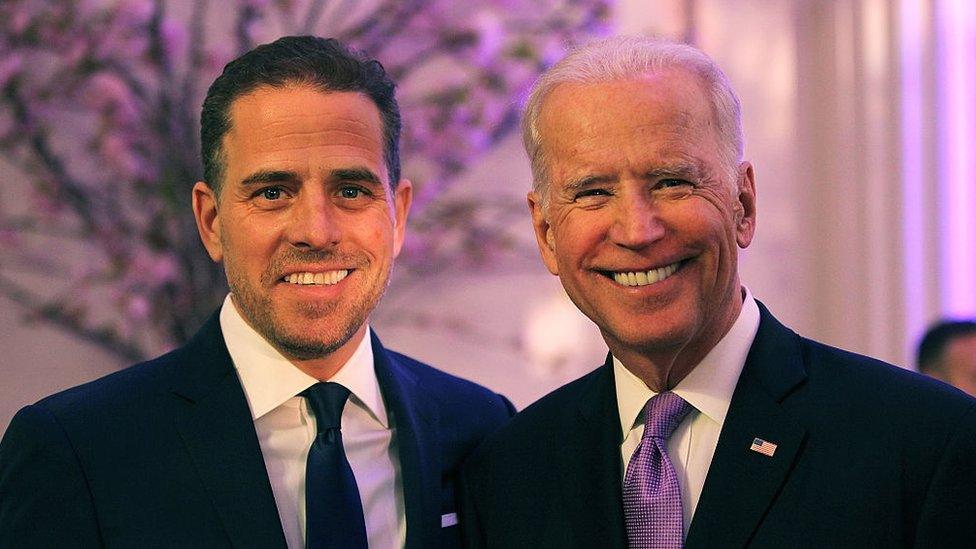
- Published22 October 2020
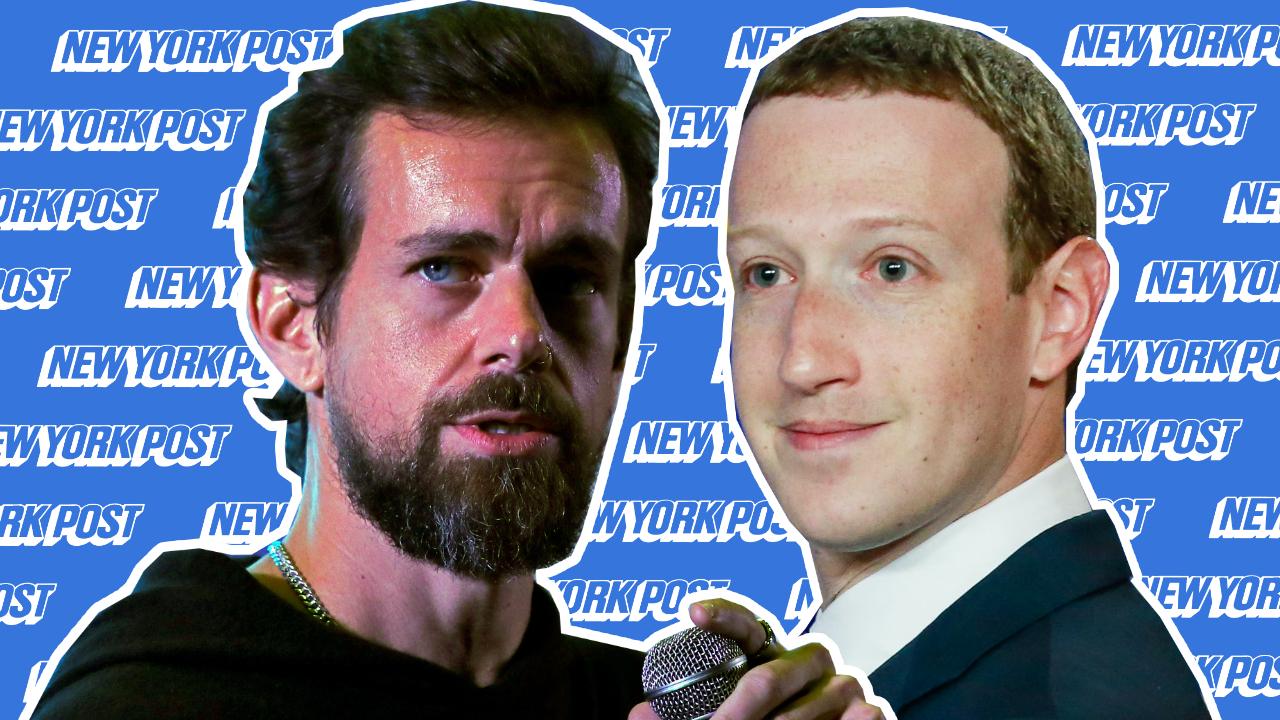
- Published15 October 2020
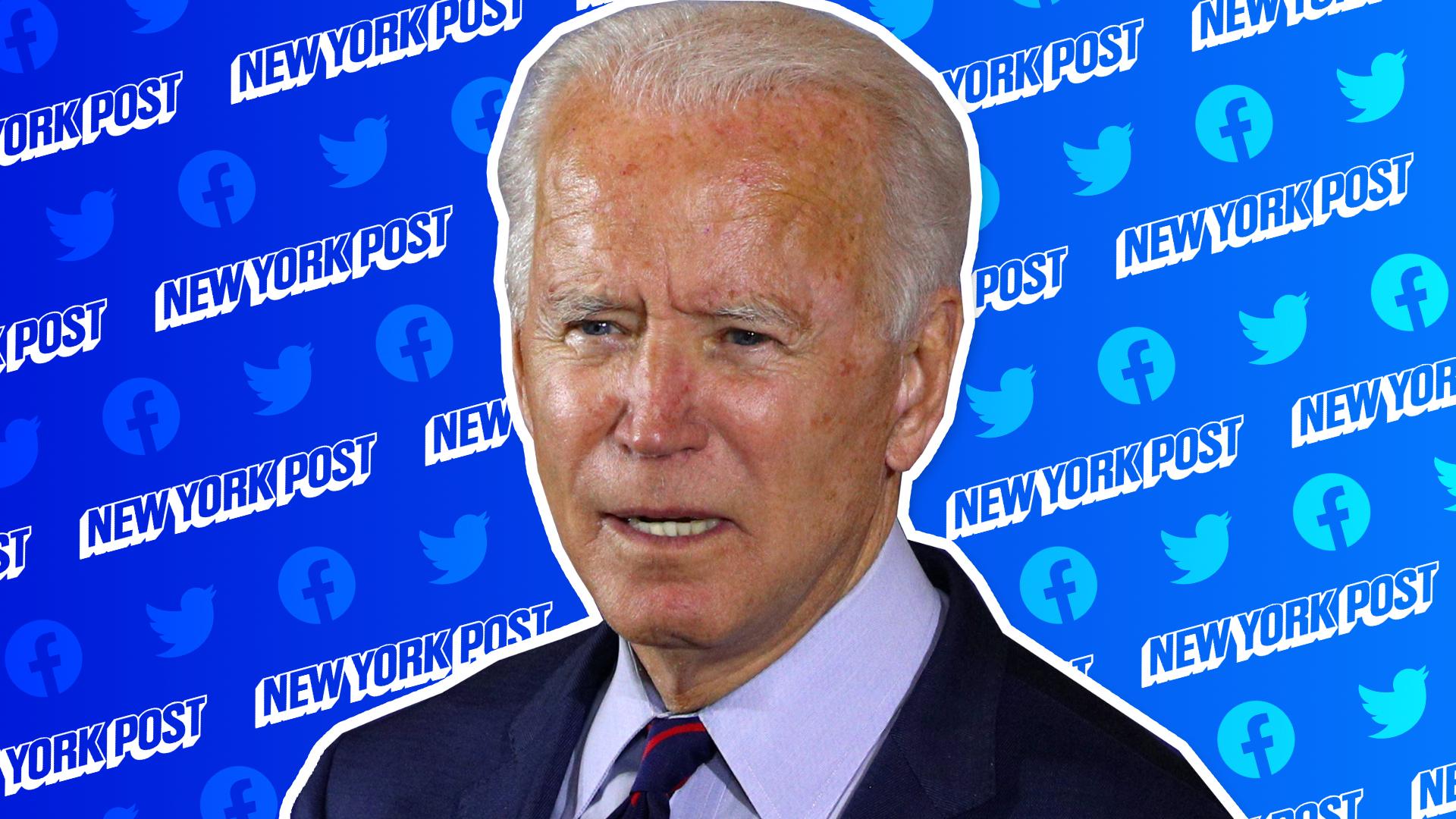
- Published16 October 2020
